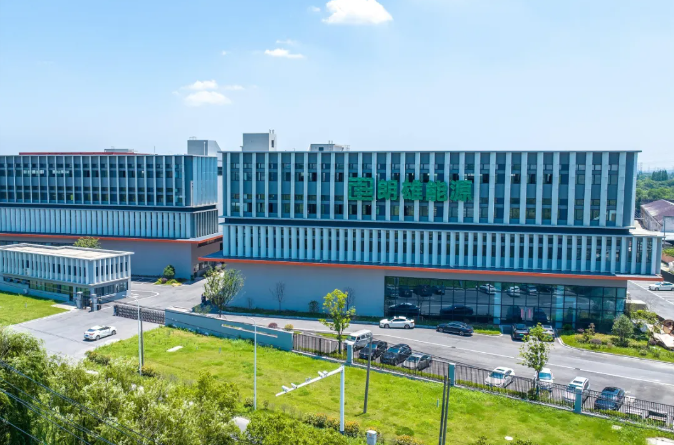
A cleantech start-up in Montreal has raised more investment capital than it was looking for to pilot a new long-duration, iron-oxide storage battery intended primarily for remote communities and industries.
The “breakthrough technology” offers “unparalleled energy density, ease of deployment, and storage stability without self-discharge,” FeX Energy said in a release last month. “These attributes make it especially well-suited for displacing high-cost fossil fuels in remote and hard-to-access locations.”
The company, a spin-off from McGill University’s Alternative Fuels Lab, raised a total of $4.78 million (US$3.5 million) from the Fathom Fund, a venture capital firm based in Houston, Toronto-based Amplify Capital, and Singapore-based Antares Ventures. The seed funding positions FeX to “demonstrate how our solution can replace high-cost fossil fuels in even the most remote and challenging locations, while laying the foundation for scalable growth across global energy systems,” CEO Hayden Smith said in the release.
“FeX exemplifies the kind of bold, scalable solution Canada can contribute to the global energy transition, combining scientific excellence with a clear pathway to industrial decarbonization,” said Amplify Capital Venture Partner Trish Nixon. “What impressed us was not only FeX’s breakthrough technology, but also the team’s commitment to building with purpose, impact, and integrity.”
Smith, who previously spent nearly two decades working on gas turbine development for larger firms like Siemens Energy and Rolls Royce, said it wasn’t easy to raise funds for the pilot installation.
“The Trump election and the fear that was driven around cross-border investing and trading led our second round to take a lot longer than we wanted it to,” he told The Energy Mix in an interview earlier this month. “It was not an easy road, but quite an exciting journey. We’ve advanced the technology, we’ve advanced the commercial traction, and now we have three amazing investors”—with the combined ability to help the company attract its next round of funding, maintain a primarily Canadian presence, and scale into wider markets beyond North America.
FeX Energy is one of a growing number of start-ups that are looking to iron—a common metal that makes up about 5% of the Earth’s crust—as a useful storage medium for energy.
“If you want to make energy storage really work, you need to make it out of something abundant and cheap that stores a lot of energy per unit volume, and stores it for a long time without losses, which is essentially what fossil fuels do over eons,” Smith explained. “There’s nothing better to do that than iron,” a substance that oxidizes (rusts) as it releases energy, then returns to its original state when energy is added.
He distinguished FeX’s storage process from companies like Form Energy, a Massachusetts-based firm that builds long-duration iron oxide batteries for power utilities using an electrochemical process not unlike the majority of batteries now under development. That approach reaps the benefit of an abundant, cheap storage medium, Smith said, “but you completely lose the density because you need an electrolyte that allows the flow of electrons or ions.” The result is a physical footprint of about 1.2 hectares for 100 megawatt-hours of storage.
By contrast, he said FeX’s thermochemical system will be able to store the same amount of energy in “just a few shipping containers”, making it a good fit for small, remote communities and hard-to-reach mining or military installations. “They’re so far away that it’s difficult and expensive to move materiel,” making deployability a “core advantage” for behind-the meter applications.
The other key gain is the ability to store energy “almost indefinitely” without losses in regions or seasons where winds can be calm or solar gain can be reduced for longer time spans.
Smith said FeX plans to install a megawatt-scale pilot system next year in a government facility in Ontario, then deploy commercial units beginning in 2028. The company also has a signed letter of intent with an independent power producer that supplies mine sites and remote communities in the Arctic, he said. By 2030, the plan is to scale up to meet remote storage needs in Canada, Latin America, Australia, and Southeast Asia.
“Once that business is being saturated, we’ll enter into other markets like industrial processes and fossil heat displacement,” offering an affordable alternative to natural gas for industries like chemicals, pulp and paper, and food and beverage. “That’s the big prize to really abate the maximum amount of carbon emissions,” , Smith said. “But it needs to be viable economically, and that viability will come with time,” as today’s fossil fuel economy is disrupted and prices rise.
“There’s this point where the [oil and gas] market just becomes ruptured,” he said. “You cannot sustain the cost of the infrastructure on a reducing number of customers, you have less revenue and less profit for reinvestment, and that just leads to this death spiral, which I believe is coming for fossil fuels. I hope it is, for all our benefit.”


